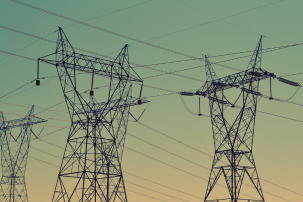Lesson summary
Through the use of a flashcard game, students explore some of the reasons why saving energy is important for our environment. They begin to think about what actions they can take to save energy.
Learning Goals:
- We need to use energy in our lives, but the less that we use the better for our environment.
Lesson guides and printables
Lesson details
Curriculum mapping
Australian Curriculum content descriptions:
Year 1 Science:
- People use science in their daily lives, including when caring for their environment and living things (ACSHE022)
Year 1 English:
- Engage in conversations and discussions, using active listening behaviours, showing interest, and contributing ideas, information and questions (ACELY1656)
- Use comprehension strategies to build literal and inferred meaning about key events, ideas and information in texts that they listen to, view and read by drawing on growing knowledge of context, text structures and language features (ACELY1660)
Year 2 Science:
- People use science in their daily lives, including when caring for their environment and living things (ACSHE035)
Year 2 English:
- Listen for specific purposes and information, including instructions, and extend students’ own and others’ ideas in discussions (ACELY1666)
- Use comprehension strategies to build literal and inferred meaning and begin to analyse texts by drawing on growing knowledge of context, language and visual features and print and multimodal text structures (ACELY1670)
Syllabus Outcomes: EN1-4A, EN1-1A, ST1-11LW, ST1-9ES.
Resources required
- Student worksheet cut into pieces
Additional info
This is an original Cool.org lesson. Facts and figures in these lessons may have changed since this lesson was published. We always endeavour to update our resources in a timely manner, but if you see an error or issue in our resources please get in touch with us.


Welcome back!
Don't have an account yet?
Log in with:
By signing up to Cool.org you consent and agree to Cool's privacy policy to
store, manage and process your personal information. To read more, please see
our privacy policy here(Opens in new tab).
Create your free Cool.org account.
Many of our resources are free, with an option to upgrade to Cool+ for premium content.
Already have an account?
Sign up with:
By signing up to Cool.org you consent and agree to Cool's privacy policy to
store, manage and process your personal information. To read more, please see
our privacy policy here(Opens in new tab).